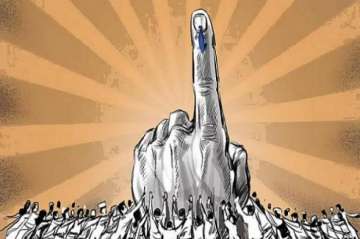Model Code Conduct: All you need to know about rules that keep our elections free and fair
What is this Model Code of Conduct and what happens if a party, candidate or any individual is found guilty of its violation? Here is all you need to know:

With on going rallies and campaigns of political parties ahead of Lok Sabha elections 2019, every now and then political parties are filing complaints against their opposition party leaders of voilating the Model Code of Conduct. Recently, CPI(M) alleged Prime Minister Narendra Modi of voilating model code of conduct by asking first time voters to vote for the IAF strike men of Balakot air strike, during his Latur rally. While Delhi BJP alleged that Congress violated model code of conduct by using public transport for party promotions. But what is this Model Code of Conduct and what happens if a party, candidate or any individual is found guilty of its violation? Here is all you need to know:
What is Model Code of Conduct?
The model code of conduct is a set of guidelines issued by Election Commission of India, for the political parties and its leaders contesting for elections, to regulate their general conduct during speeches, rallies, election manifestos and portfolios. Right after the Election Commission announces the schedule, the model code of conduct comes into force to ensure free and fair election across the nation. With this set of rules EC ensures that the ruling party should not use its seat of power for the campaign purposes.
When Model Code of Conduct comes into force?
The model code of conduct comes into force immediately after EC chief's announcement and it will remain till the election process ends. It was on 10 March 2019, when EC announced that 2019 polls will held in seven phase, starting from 11 April 2019 till 19 May 2019.
Where Model Code of Conduct is implemented?
During the Lok Sabha elections model code of conduct is implemented throughout the nation but during the state assembly and local body elections, it is implemented only to the constituency that is going to be polled.
What are the set of rules and regulations under Model Code of Conduct?
The candidates or parties cannot:
- Lay down any new project or public initiative by governement during Model Code of Conduct is in force.
- Use pictures of defence and military personnels in advertisements, posters, or any other campaign related activity.
- Participat in any recruitment process by governement bodies during electoral process.
- Campaigners must respect their rivals' home life and should not disturb them by holding road shows or rallies in front of their houses.
- Hinder the traffic with road shows and rallies.
- Distribute liquor or cash to voters.
- Launch new welfare programs.
- Display their election symbols near and around the poll booths on polling day.
What candidates and parties must do:
- Public places like meeting grounds, helipads, governement guest houses and bunglows must be equally shared among the polling parties.
- Candidates and political parties must obtain permission or license from the local authorities before using loud speakers during rallies and campaigns and must not be used between 10 pm and 6 am.
- Local police must be informed by the candidates for conducting election rallies to enable the police authorities to make required security arrangements.
- Holding public meetings within the 48 hours before polling time ends.
- Picking up and dropping off voters from polling booths.
What happens if the Model Code of Conduct is violated or not followed?
The Eelection Commission has the power to impose a fine, file an FIR that may also lead to imprisonment. It is even allowed to cancel the polls in that constituency where the Model Code of Conduct has been violated.
Who can complaint against the violation of Model Code of Conduct?
The electoral body has introduced cVIGIL mobile app though which any citizen can complain about the violation, by uploading photos and videos of violation as proof. The details and identity will be kept anonymous.
On polling day, there will be poll observers at every polling booth to whom any complaints can be reported or submitted.